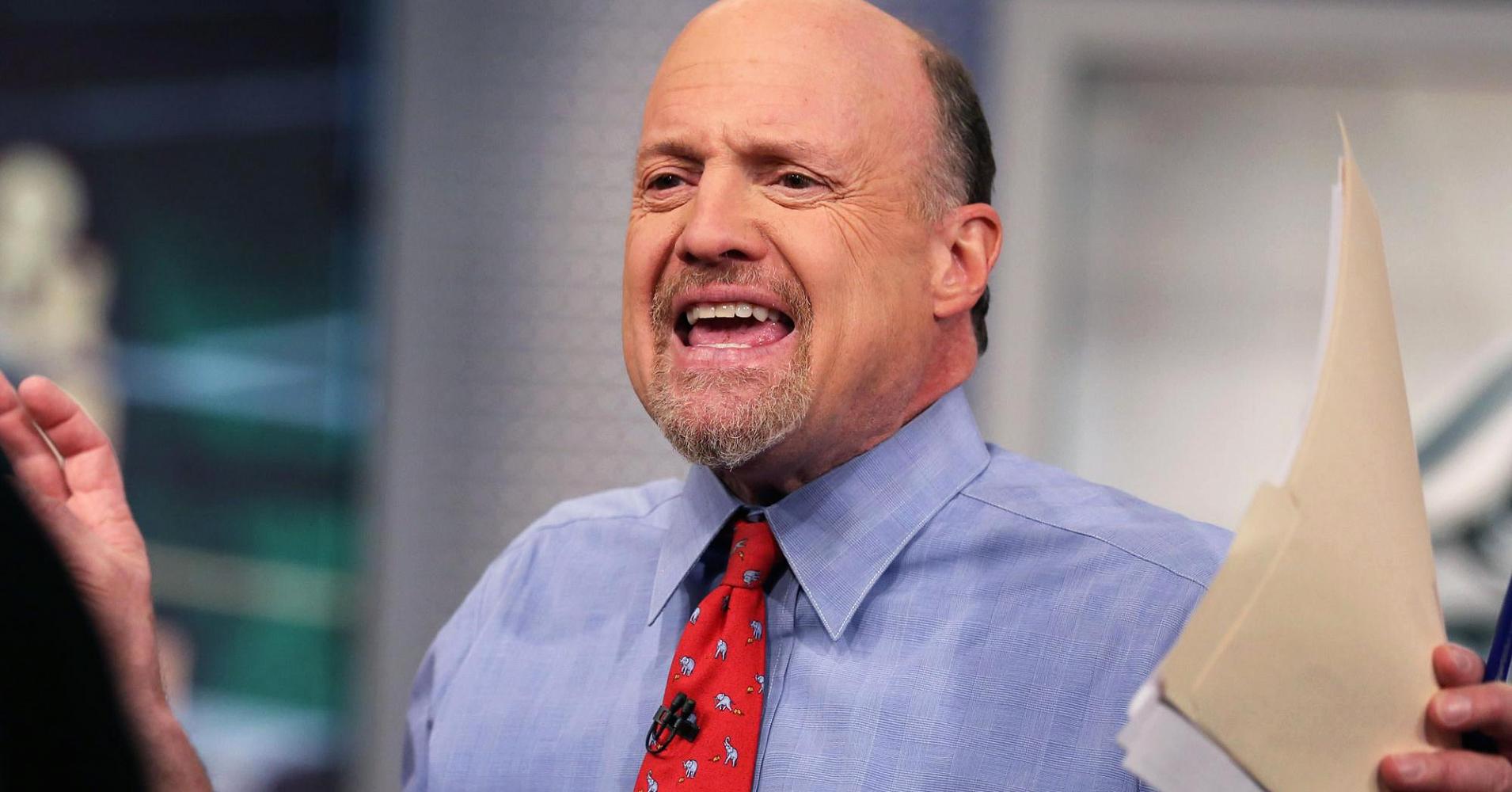
CNBC’s Jim Cramer thinks the consumer is still underappreciated in this stock market despite strong data from the retailers’ fourth quarters.
“While the new tax regime will be very favorable for the retailers and restaurants, it’s a one-time change; a year from now we’ll anniversary the new numbers and that will be that. What matters even more, though, right now, is how business is actually doing as measured by the top line, the revenue line,” the “Mad Money” host said.
And, thanks to a robust holiday season, the revenue lines for businesses like Tiffany, Home Depot, Kohl’s and Walmart are starting to benefit from the pickup in consumer spending.
“When it comes to revenue, the consumer spending factor [is] the new wild card, and it’s playing out in spectacular fashion,” Cramer said. “You throw in the fact that we have a weak dollar and it’s clear everything is coming up roses for this sector, far rosier than the stocks.”
While Cramer would be happy to talk about the tax benefits and windfall of bonuses that came from Washington’s new tax law, he’d rather talk about Apple.
“Apple, using some of the gigantic $252 billion cash hoard that it has overseas, announced [Wednesday] what I think is a modern-day Marshall Plan for the U.S. economy,” Cramer said. “Apple committed to directly investing $350 billion into the United States over the next five years, including $38 billion in repatriation taxes.”
Cramer was referencing the United States’ 1948 initiative in which the Truman administration devoted $140 billion, adjusted for inflation, to rebuilding Western Europe after World War II.
In some ways, Apple CEO Tim Cook’s thinking was bigger than General George Marshall’s, Cramer argued after a phone conversation with Cook himself.
Cramer firmly believes that the financial stocks are the most important leadership group in the market, so he wanted to check in with some of its biggest players after earnings.
When Cramer told viewers what to look for from the banks’ earnings reports last week, he anticipated the hefty, one-time charges many of them incurred to take advantage of newly enacted tax laws.
“I know it was pure accounting gimmickry, but I worried that it might freak out investors. Turns out there was no need to worry,” the “Mad Money” host said. “J.P. Morgan, Bank of America, Wells Fargo and Citigroup all delivered substantial earnings beats, even as only J.P. Morgan and Citi actually gave you that higher-than-expected revenue that I like to see.”
For Cramer, the “headline numbers” — how the earnings and revenue results compared to analysts’ estimates — were less important than the banks’ net interest margins, loan growth and capital return plans.
Energy guru Charif Souki, the chairman and co-founder of Tellurian, told CNBC on Wednesday that the natural gas industry is going to need a major fund infusion to keep drilling.
“We have so much natural gas in this country,” Souki told Cramer. “Just the amount of gas that is already behind pipe, or that is going to be found because of oil production at $60 a barrel, is going to require over $150 billion of infrastructure investment over the next five years.”
Souki, formerly CEO of Cheniere Energy, co-founded Tellurian to take advantage of the industry’s need for low-cost liquefied natural gas.
Gathering and interpreting big data is proving challenging for many high-profile businesses, Splunk President and CEO Doug Merritt told Cramer on Wednesday.
“I meet with hundreds of customers every single year and they’re all wrestling with that challenge of big data’s growing like crazy and how, ultimately, to get insights,” the CEO said. “But that starts, in the very beginning, [with] what data do we even look for? How do I find big data? What are sources of big data? Then, how do I correlate these colliding streams that are hard to make sense from so I can get those insights and take action?”
Splunk, which manages data for massive companies like Mercedes parent Daimler AG, is a leader in machine data, a segment Merritt said is growing 50 times faster than “traditional business data.”
“Splunk distinguishes itself on a couple of differentiated axes,” Merritt said. “The first … is scale. Our bigger customers are ingesting petabytes of data per day – petabytes per day. It takes 2 million active users on the internet to drive a petabyte of data, so it’s a massive scale. And it’s not just that ingest piece – it’s how do I get real-time information? The whole power of machine data is I’ve got to get quick response times so I can sense and respond.”
In Cramer’s lightning round, he flew through his take on some callers’ favorite stocks:
Intel: “That stuff [about faulty chips] is nonsense. There was some degradation. It will not even matter. You will not look back. You will not be able to see why that stock went down. I trust [CEO] Brian Krzanich. He’s a good man. If he tells me the problem’s solved, the problem is solved.”
Exelon Corporation: “No, I prefer to make [mad money] in Dominion, American Electric Power, which has come down a great deal, or ConEd, which has also gotten hammered.”
Questions for Cramer?
Call Cramer: 1-800-743-CNBCWant to take a deep dive into Cramer’s world? Hit him up!
Mad Money Twitter – Jim Cramer Twitter – Facebook – Instagram – VineQuestions, comments, suggestions for the “Mad Money” website? madcap@cnbc.com

